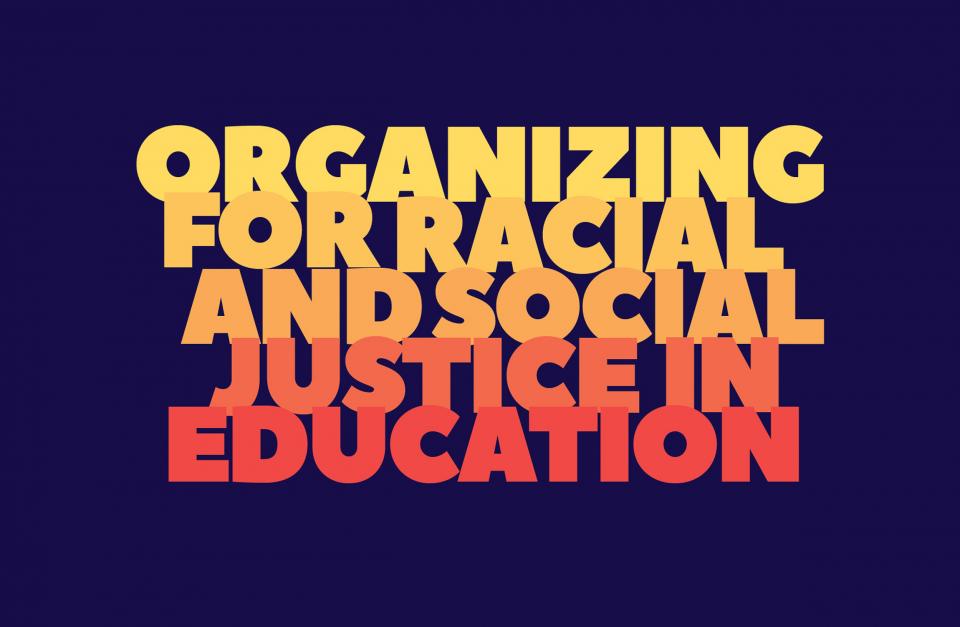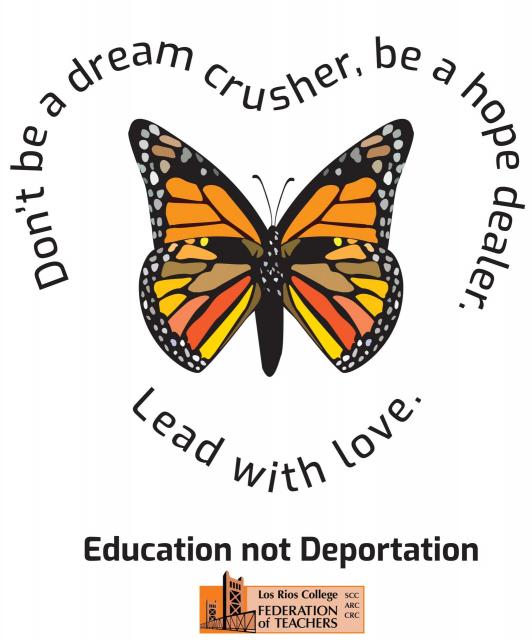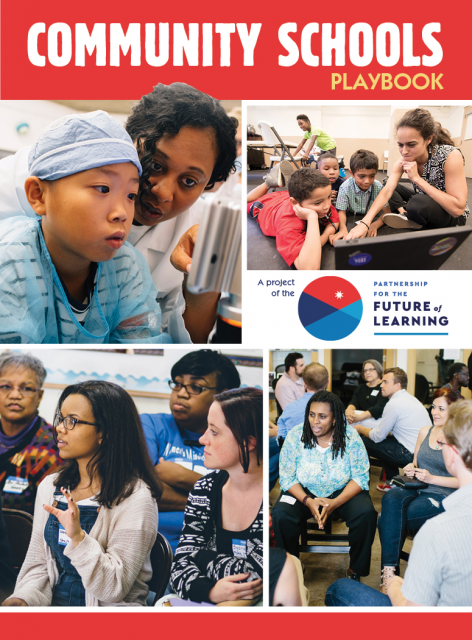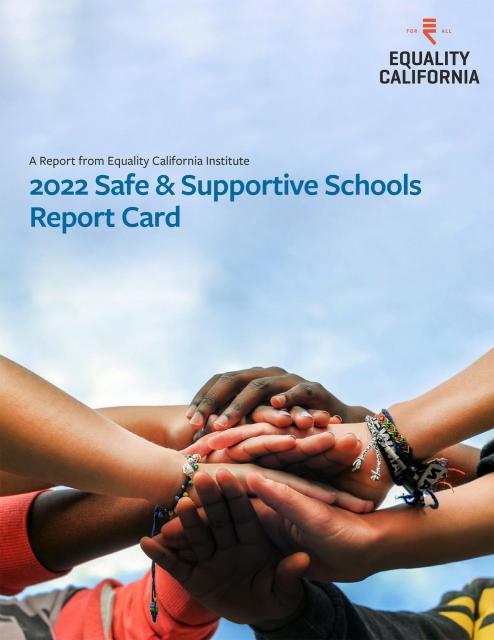Racial and Social Justice in Education Toolkit
We compiled top resources from successful workshops offered by CFT — about working with undocumented students, dismantling male supremacy and white supremacy, and implicit bias. And we’ve looped in more CFT toolkits — to provide you a comprehensive set of resources on a wide range of relevant topics in our Racial and Social Justice in Education toolkit.
Supporting Undocumented Students
Find resources from the workshop Supporting Our Undocumented Community: A Call to Action. Read our story here.
CFT Safe Havens
Toolkit
Find CFT’s comprehensive collection of resources from AFT and
other community allies. You can find booklets, flyers, and a
poster, websites and lesson plans.
Undocumented
Students Support E-Handbook
This new electronic handbook aims to collect and elevate
promising practices across the California Community Colleges in
order to provide undocumented students with holistic resources
and services.
UnDocuAlly Toolkit
This google drive contains information from the workshop at the
CFT Leadership Conference, including the slides presented, family
resources, and collective bargaining MOUs. Materials have been
compiled by members of the Los Rios College Federation of
Teachers.
Understanding Implicit Bias
Find resources from the workshop Understanding Implicit Bias and Stereotypes. Read our story here.
Kirwan
Institute for the Study of Race and Ethnicity
Learning about implicit bias provides a lens to help examine
causes of racial, gender, or other social disparities, even in
the absence of explicit intent to discriminate. The Kirwin
Institute at Ohio State University provides four training modules
from the nation’s leading experts on implicit bias . The modules
range from “Understanding Implicit Bias” to “Mitigating Unwanted
Biases.” Each module has an introduction and several lessons.
Knowledge about the operation of implicit bias can help inform
the individual and institutional approaches you take to address
inequitable outcomes in your classroom or school.
“The
Look”
Watch this short video (less than 2 minutes) where people react
in negative ways to a Black man — not holding the elevator for
him, a driver rolling up the car windows when her daughter waves
at his son, looking at him oddly when he and his son are in the
pool, choosing not to sit near him at a diner. At the end of the
video, the scene is a courtroom where he’s the judge. “Let’s talk
about the look…so we can see beyond it.”
What Does it Mean to Be Anti-Racist?
In the wake of protests against police violence and the killings
of Black and Brown people over the decades, the term
“anti-racism” is popping up all over the place. What is
anti-racism, and what does it mean to be anti-racist? Find out in
the 10-minute video.
Ted Talk:
How I Learned to Stop Worrying and Love Discussing
Race
Jay Smooth is host of New York’s longest running hip-hop radio
show, the Underground Railroad on WBAI 99.5 FM in NY, and is an
acclaimed commentator on politics and culture. In this 11-minute
talk, he discusses the sometimes thorny territory of how we
discuss issues of race and racism, offering insightful and
humorous suggestions for expanding our perception of the subject.
Project
Implicit
On the Project Implicit site, you can take an Implicit
Association Test (IAT) from a list of possible topics. The
mission of Project Implicit is to educate the public about bias
and to provide a “virtual laboratory” for collecting data on the
internet. Project Implicit scientists produce high-impact
research that forms the basis of our scientific knowledge about
bias and disparities.
Dismantling Male Supremacy and White Supremacy
Find resources from the workshop Dismantling the Intersections of Male Supremacy Culture and White Supremacy Culture in Our Workplaces. Read our story here.
The
urgency of intersectionality
Now more than ever, it’s important to look boldly at the reality
of race and gender bias — and understand how the two can combine
to create even more harm. Kimberlé Crenshaw uses the term
“intersectionality” to describe this phenomenon; as she says, if
you’re standing in the path of multiple forms of exclusion,
you’re likely to get hit by both. In this moving Ted talk, she
calls on us to bear witness to this reality and speak up for
victims of prejudice.
White supremacy culture
This is a list of characteristics of white supremacy culture that
show up in our organizations. Culture is powerful precisely
because it is so present and at the same time so very difficult
to name or identify. The characteristics listed are damaging
because they are used as norms and standards without being
pro-actively named or chosen by the group. They are damaging
because they promote white supremacy thinking.
Dismantling
Racism Works Web Workbook
This online workbook, also from Dismantling Racism Works
(dRworks), is offered as a resource to the community after the
group worked with and learned from hundreds of
activists, leaders, and community members and compiled this
collection of resources.
NYPD’s infamous stop-and-frisk policy found
unconstitutional
The controversial policy allowed police officers to stop,
interrogate and search New York City citizens on the sole basis
of “reasonable suspicion.” Judge Shira A. Scheindlin ruled that
NYPD’s stop-and-frisk tactics violate the U.S Constitution’s
4th Amendment prohibition of unreasonable searches and
seizures. Overwhelming evidence suggests that the policy is used
as a method of racially profiling and harassing Black and Latinx
citizens.
Community Schools for Student Success
CFT Community Schools
Toolkit
Find out how community schools support students, educators and
families. Find case studies from San Francisco and Los
Angeles. And find links to a ton of resources about community
schools in our toolkit.
Safety and Support for LGBTQ+ Community
Safe and
Supportive Schools Report Card
The people at Equality
California have a useful resource in their second Safe and
Supportive Schools Report Card, released in fall 2022. The
data was gathered through their survey of the state’s
343 unified school districts to see what best practices and
required protections the districts provide in support of
LGBTQ+ student well-being on campus, looking at things like
curriculum, cultural competency, and school climate. This report
can be a helpful tool for teachers and support staff who are
looking for guidelines when advocating for their
students. Equality California also plans to develop a
training for educators. (Our own CFT President Jeff Freitas
sits on the Equality California
Institute Board.)
CFT Pride Month
Toolkit
Find top lessons plans, and resources for families and
communities in our Pride Month Toolkit. The purpose of the
commemorative month (June) is to recognize the impact that LGBTQ+
individuals have had on history locally, nationally, and
internationally.
Supporting the Asian American Pacific Islander Community
CFT AAPI
Month Toolkit
Find key moments in the histories of Asian American and
Pacific Islander communities. Also find important resources to
break down Asian Pacific American bias and stop AAPI hate
and bullying.




